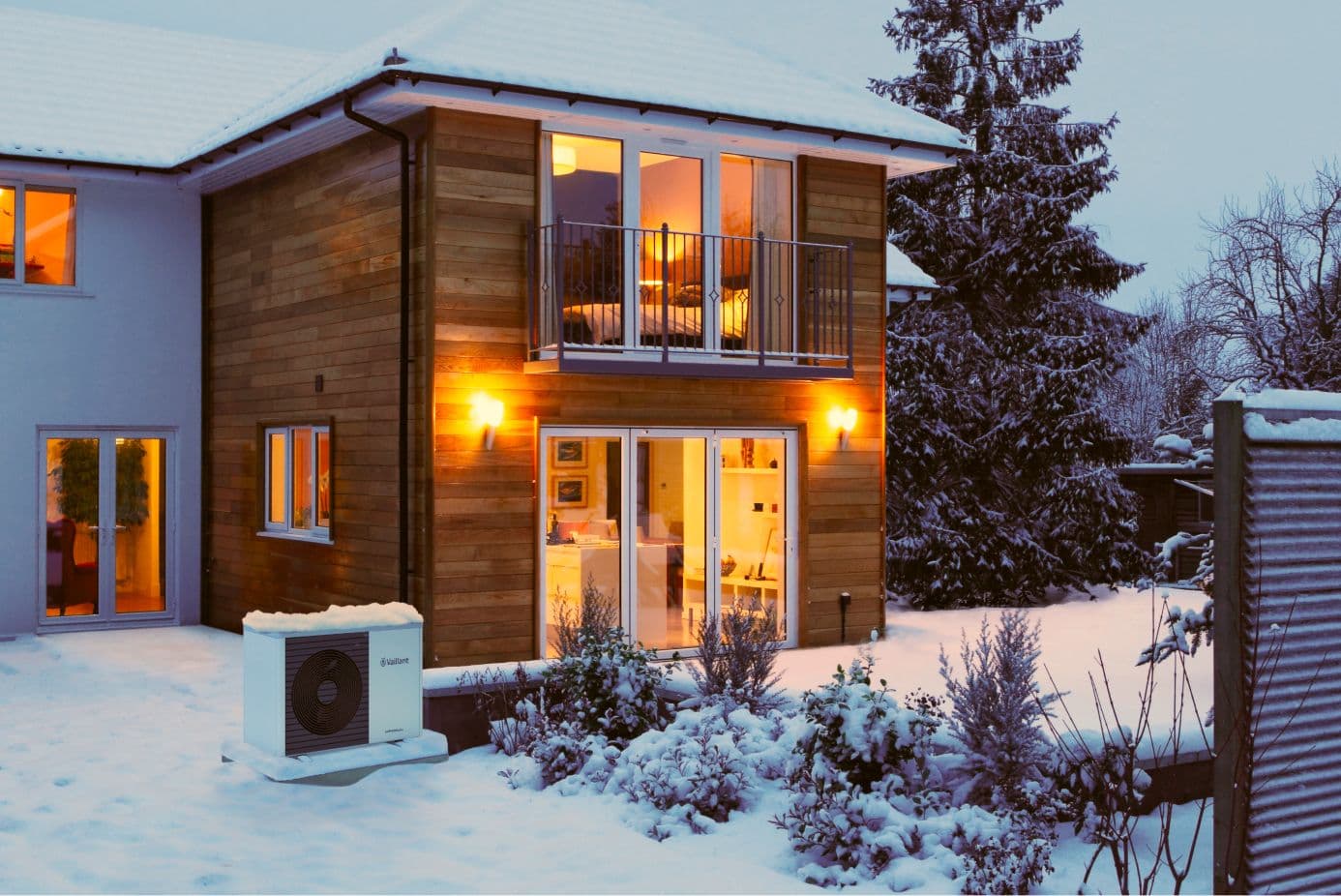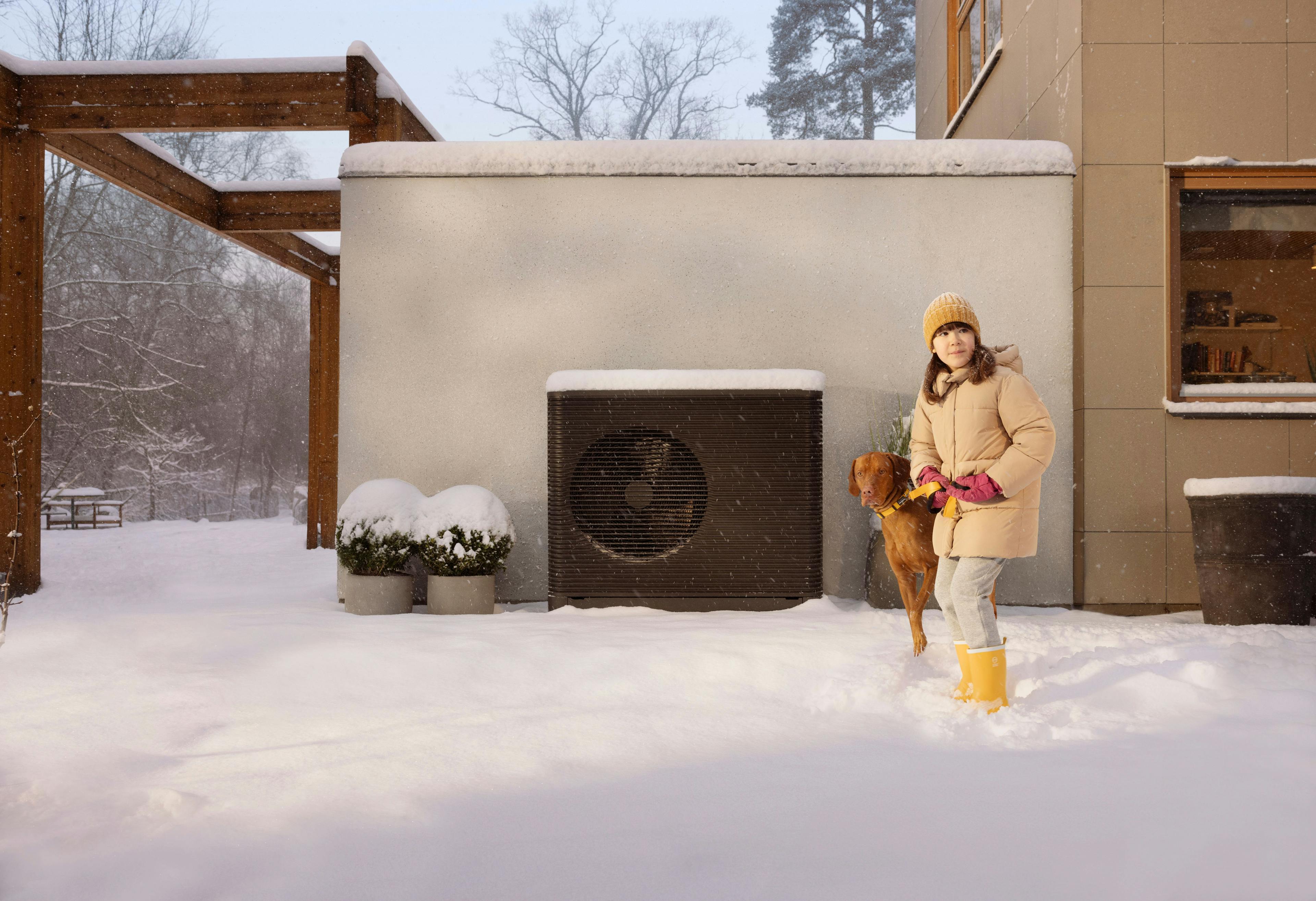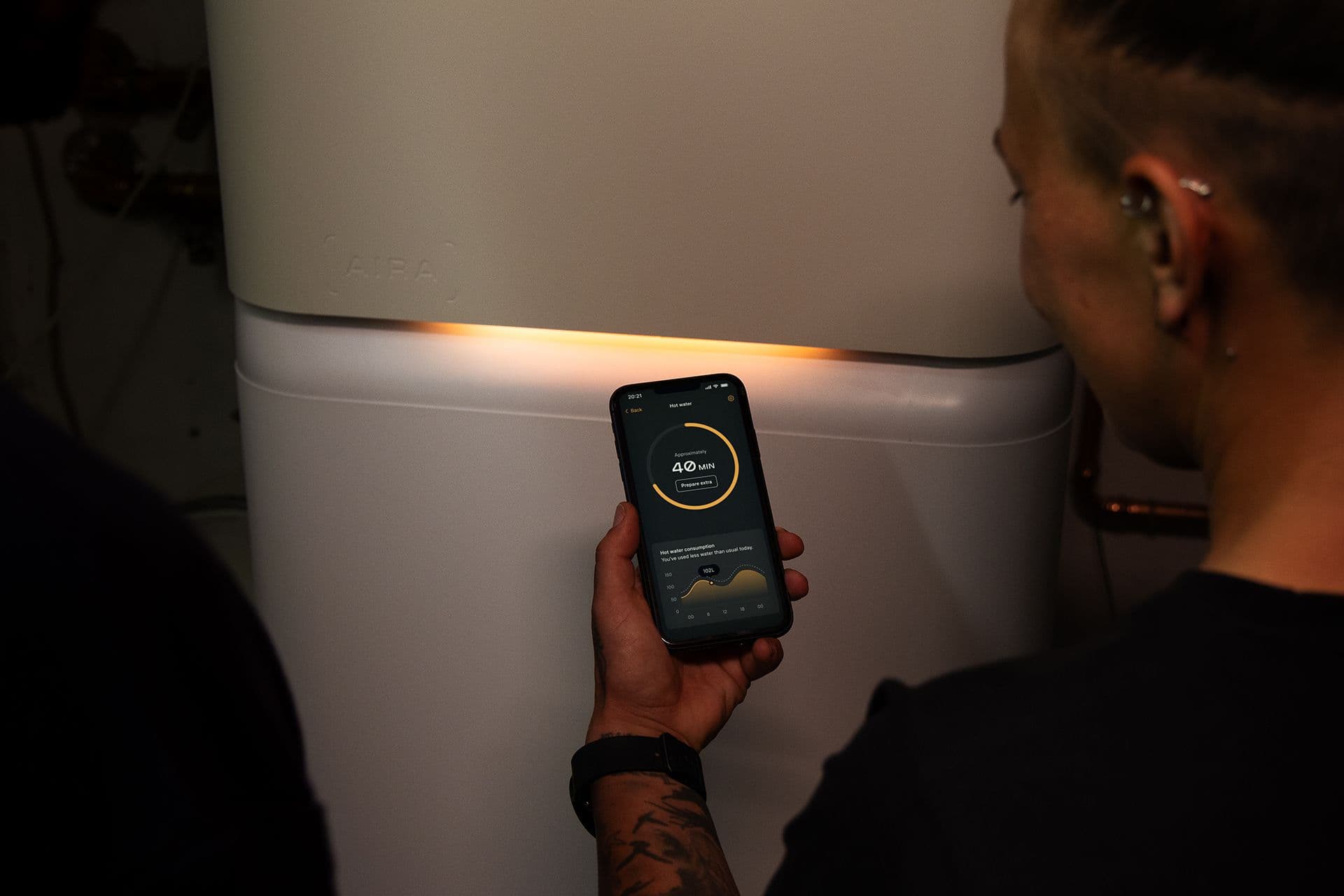Saving redundant gas boilers from the scrap heap: Aira meets The Salvage Sister
Today, residential heating is Europe’s third-largest emitter of CO₂ and is responsible for 16% of the UK’s CO₂ emissions…
Read more
Content Writer : Carl Robinson
Source Article : https://www.airahome.com/en-gb/blog/do-heat-pumps-work-in-cold-weather
As heat pumps use fresh air from outside to heat your home, it’s natural to wonder how your home stays warm with a heat pump even in the winter. Just because it’s cold, doesn’t mean there isn’t free energy available. Your heat pump uses free energy from the outside air to heat your pump’s refrigerant, which immediately starts boiling, even at subzero temperatures, meaning there’s little to no chance of the refrigerant in your heat pump freezing over, even in the coldest of winters. This means your heat pump works exactly the same way in winter as it does the rest of the year – leaving your home cosy and warm for a fraction of the energy cost.
Your heat pump system can still warm your home effectively in cold weather. As you’d expect, a heat pump will have to work harder and use more electricity in icy spells, so your efficiency will decrease a little – but heat pumps are still drastically more efficient than other home heaters.
When measuring a heat pump’s efficiency in winter, it’s worth looking at Seasonal Coefficient of Performance (SCOP) which gives a zoomed-out view of how a heat pump will perform seasonally. The SCOP factors in the temperature changes between summer and winter, to give you a clear picture. Your Vaillant air source heat pump provided by Aira can achieve a SCOP of up to 5.03, meaning it can deliver up to 5.03 kilowatts of heat for every 1 kilowatt of electricity it consumes, making their efficiency over 500%. Beat that, boilers – which struggle to reach even 90% efficiency in moderate weather.
Overall, an air to water heat pump or ground source heat pump is amongst the most efficient home heating systems you could choose, even in the depths of winter – and definitely more efficient than a gas guzzling boiler.

The coldest temperature your heat pump can work will depend on both the type of heat pump you have, and how effective your home’s insulation is. Most households choose an air-to-water heat pump, which still works effectively in temperatures as low as -10C, and some even have an efficiency rate of over 200% at -20C, according to research from Oxford University’s Environmental Change Institute. With average UK winters hitting just below 0 degrees, you’ll find an air to water heat pump can keep you cosy on the harshest of winter nights.
It’s no secret that the UK can face some bracingly harsh winters. Heat pumps are still a great choice even for the coldest spells – just ask Scandinavian countries facing even colder winters, who’ve adopted heat pumps in droves. For British homeowners with heat pumps, it’s worth bearing in mind that there are certain precautions to take with heat pumps so that they remain as efficient as possible during the worst of the weather.
Heat pumps can freeze in the winter, when the heat pump evaporator is colder than the surrounding air. But should you worry? Not at all. You can prevent your heat pump from freezing up in the winter by ensuring your heat pump is free from leaves and debris and other airflow-blocking items.
Spotting frost around your heat pump? Don’t panic. Most heat pumps – including ours – have an inbuilt defrosting setting which will automatically clear up the fans, preventing damage and ensuring they can still work efficiently in heating your home on icy days.
A heat pump cover is intended to protect your device from snow and other winter elements. However, in the UK there is not enough snow for this to be a true concern. If you do live in a snowy climate, you may want to consider installing a custom-built cover that is specifically designed for heat pumps, otherwise you could inadvertently block the airflow. Alternatively, one could raise the heat pump off the ground, to add some clearance from the snow.
There are certain precautions a homeowner should take to ensure that their heat pump is not damaged or less efficient during the winter. This includes regular maintenance on the pump and servicing (covered when you switch to Aira for home heating) to ensure that the air filter is clean and replaced when necessary. Your heat pump’s airflow should also be checked to ensure it’s clear from leaves and debris. And while you may be tempted to play around with your thermostat, try to keep it at one setting to keep it running as efficiently as possible – which is good for the environment and your pocket.

A ground source heat pump is often the most efficient choice of heat pump for extremely cold climates, and will work year-round. Why? Because the temperature underground is stable, ranging from 5 to 15 Celsius over the year. This means more heat can be generated using less electricity. As a result, you’ll find a ground source heat pump typically has a SCOP of 4, meaning they can deliver an impressive 3-4 kilowatts of heat for every 1 kilowatt of electricity they consume, making their efficiency 300-400%. Many ground source heat pumps can keep working at temperatures as low as -28 Celcius too.
Are heat pumps worth it compared to boilers even in the winter? Absolutely. Boilers need extensive insulation and are often hugely inefficient and guzzle greenhouse gases, as well as requiring regular servicing. Heat pumps, however, are 4x more efficient than boilers, meaning you spend less on energy for the energy produced – and your trusty heat pump will be heating your home at a low cost and high efficiency, even in cold weather. Take a look at our in-depth comparison of air source heat pumps vs gas boilers to see which system is right for you.
When you choose Aira to provide your heat pump, you’ll receive our industry-leading 15 Year Comfort Guarantee as part of your switch. This guarantees that your heat pump will provide a cosy indoor temperature, even on the coldest day of the year. If not, we’ll come out and fix it.
Ahead of installing your new heat pump, Aira will conduct a free home energy assessment and custom design to ensure your heat pump is tailored to your home and hot water needs. Our best-in-class Aira Heat Pump is not only one of the quietest on the market but uses an R290 refrigerant, a natural refrigerant that provides a higher flow temperature without harming the ozone layer.
Contact us for a no-strings chat about improving your home’s energy efficiency!